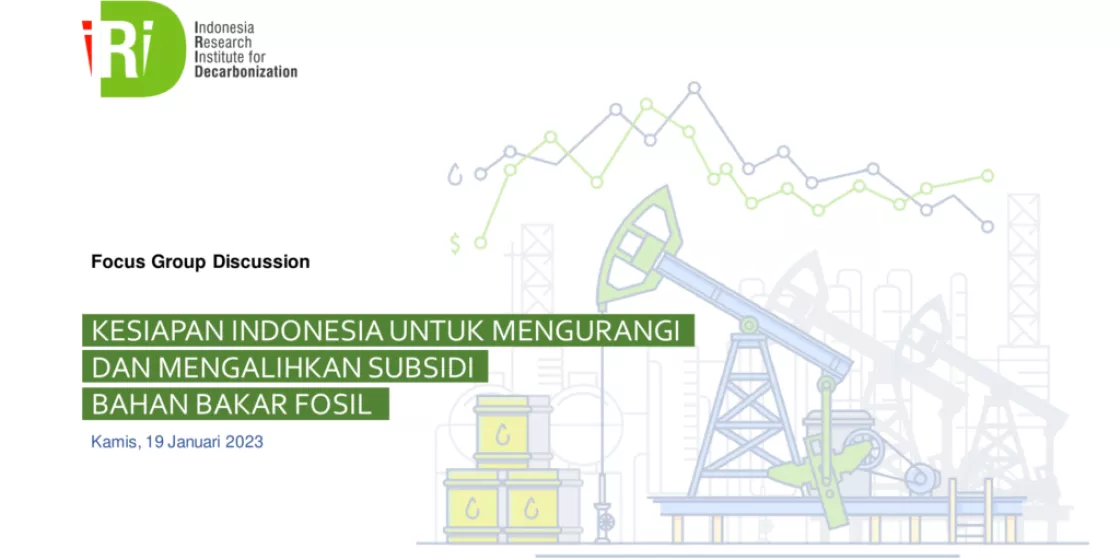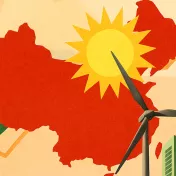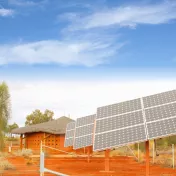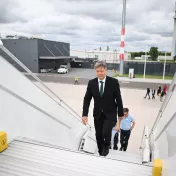Fossil fuel subsidies have long been a subject of discussion for the G20. It was addressed during the G20 summit in Bali last year and confirmed by the results of COP27 in Sharm el-Sheikh. In paragraph 12 of the Bali Leaders' Declaration, G20 members agreed to
‘[…] increase [their] efforts to implement the commitment made in 2009 in Pittsburgh to phase out and rationalize, over the medium-term, inefficient fossil fuel subsidies that encourage wasteful consumption and commit to achieve this objective, while providing targeted support for the poorest and the most vulnerable […]’
Furthermore, paragraph 13 of the Sharm el-Sheikh Implementation Plan, one of the outcomes of COP27, states the following:
‘[The Conference of the Parties calls upon Parties to accelerate the development, deployment and dissemination of technologies, and the adoption of policies, to transition towards low-emission energy systems, including by rapidly scaling up the deployment of clean power generation and energy efficiency measures, including accelerating efforts towards the phasedown of unabated coal power and phase-out of inefficient fossil fuel subsidies, while providing targeted support to the poorest and most vulnerable in line with national circumstances and recognizing the need for support towards a just transition.’
As one of the G20 countries, Indonesia needs to prepare for the removal and redirection of fossil fuel subsidies without creating long-term negative impacts, especially in socio-economic terms. There are at least two possible effects of removing and redirecting these subsidies: On the one hand, by making the use of fossil fuels much more expensive, it could reduce the amount of greenhouse gas emissions from fossil fuel combustion. On the other hand, the fiscal space that was previously used for subsidies could be used to finance climate action, both for decarbonisation and for efforts to make communities more resilient to the impacts of climate change.
The Indonesia Research Institute for Decarbonisation (IRID) and Germanwatch confirm the need for G20 countries to reduce and shift fossil fuel subsidies. As this requires the readiness of G20 developing countries, on 19 January 2023, IRID and Germanwatch hosted a group discussion focused on Indonesia.
The discussion took place in Pullman Hotel, Jakarta and attended by members of the civil society, government, and think thank. There are also experts who helped to start the discussion namely: Lucky Lontoh, Associate and Country Coordinator, International Institute for Sustainable Development (IISD); Kristiyanto, Associate Policy Analyst from the Centre for State Budget Policy, Fiscal Policy Agency, Indonesian Ministry of Finance; Ruddy Gobel, Head of Communication and Partnership Unit, National Team for the Acceleration of Poverty Reduction (TNP2K); and Tulus Abadi, Chairman of the Indonesian Consumers Foundation (YLKI).
G20 and fossil fuel subsidies
IISD has developed a scorecard system to show how G20 countries are performing on fossil fuel financing in terms of transparency, commitment, and the implementation of subsidies in the coal, oil and gas, and fuel consumption sectors. It also provides a comparison of the subsidies provided by each country between 2014 and 2016.
In general, the scorecard reveals that G20 countries, including Indonesia, tend to perform poorly on fossil fuel finance. However, it is important to keep in mind that each country has different policies for subsidising fossil fuels. Therefore, the G20 cannot provide a ‘one-size-fits-all’ solution in this regard. Moreover, the G20 continues to focus on the Covid-19 recovery that leads to the use of fossil energy.
Looking at the overall scorecard ranking, Indonesia still spends USD 110 million to support coal and USD 3.2 billion to support the oil and gas sector. This suggests that there remains a large gap in government support between fossil fuels and renewable energy.
The discussion on fuel subsidies will only be included in the G20 agenda if there is an energy crisis or crude oil price crisis. The reason for this is that the G20 is essentially a forum for economic cooperation and not for the environment. Therefore, only if there is an increase in commodity prices that affects the economic sector, the topic will be proposed for inclusion on the agenda.
Fossil fuel subsidies in Indonesia
The subsidies for fossil fuels provided by the Indonesian government are still not equitably distributed and poorly targeted. Therefore, a new approach is needed to introduce a flexible price adjustment system for fuel. In determining The government must take into account both the cost of externalities and future emissions when establishing fuel prices.fuel prices, the government needs to consider the cost of externalities and that of future emissions.
Indonesia's role in the oil sector has changed from being a net exporter to a net importer. Subsidy policy development in Indonesia does not focus on reforming the system itself, but rather focuses on the existing energy subsidy policies. Currently, only the electricity subsidy policy for low-income households can be considered more progressive in Indonesia. This policy has a clear allocation of beneficiaries, as households are categorised according to their scale of consumption when electricity prices are set. On the other hand, it is mainly upper-middle income households that benefit from fossil fuel subsidies, including subsidies for diesel, pertalite, and liquefied petroleum gas (LPG). Pertalite is a trademark for subsidised gasoline with an octane rating number of RON 90, which is distributed mainly for vehicle use by Pertamina. Even though the subsidies target poor households, this is because they are still available to all without clear categorisation.
There is also a need for a more strategic and long-term reorientation of energy subsidies. For example, subsidies could be shifted from fossil fuels to renewable energy. This would encourage the use of renewable energy on a larger scale.
Reducing and redirecting fossil fuel subsidies in Indonesia
The focus group discussions identified several policy options that could be implemented to shift fossil fuel subsidies. The first option is to limit the consumption of subsidised LPG, which is only available to poor and vulnerable households.
The second is to establish subsidies that target their beneficiaries directly. This would change the subsidy mechanism from subsidising goods or prices to subsidising the poor and vulnerable directly. However, such a policy would result in a significant price gap between the subsidised price and the market price of goods, which might make it difficult to implement.
By applying these two policy options, the government could save large parts of the state budget and reduce the poverty gap and inequality in Indonesia.
The focus discussion group also supported the idea that Indonesia needs to reduce fossil fuel consumption. However, Indonesia has to take some important steps to improve its readiness.
First, the government needs to implement policies to discourage and control fossil fuel consumption. To ensure equitable access to energy, it should furthermore redirect fossil fuel subsidies towards the development of new and renewable energy that is accessible to everyone.
Second, the government needs to ensure that the subsidies are well targeted to the poor and vulnerable, which can be done by improving the civil registration and data system and assigning a single identity to people. This would make it possible to assess whether or not they meet the criteria for the subsidy.
Third, it is necessary to work on changing the mentality of the people and the government. Indonesians need to realise that the current cheap oil is not an achievement of the country. Therefore, people are expected to develop sustainable energy consumption patterns. There is also a need to educate pressure groups together with large civil society organisations, academics, and Micro Small and Medium Enterprises (MSMEs).
Fourth, the government should evaluate its subsidy policy, which applies not only to the energy sector but also to other commodities such as fertilisers. This should improve the performance of implementing subsidies which are no longer used for fossil fuels.
------------------------------------------------------------
This blog post was first published in Indonesian on 10 February 2023 by our partner organisation Indonesia Research Institute for Decarbonization (IRID). To access the original article, please follow this link.






